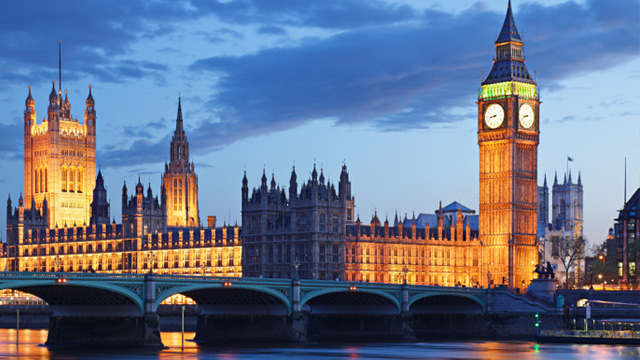Who Will Arrive From London on Genocide Commemoratons

On March 26th I visited the British Embassy to do an interview with Her Majesty’s Ambassador to Armenia, H. E. Katherine Jane Leach. Nonetheless I was meeting Madam Ambassador for the first time, I expected there to be rather a talk than an interview. That’s because I’ve been in UK many times, I love that country very much and my memories about UK that’s not only the walks in Trafalgar Square or the visits to House of Lords, or the excursion in State Rooms of Buckingham Palace, but also I remember the picturesque village in Wales, where stands the fairy Castell Coch, or the tiny boats sailing in stream of Stratford-upon-Avon, where Shakespeare was born and has died, the calm, narrow streets of Marlboro in Middle England, the 800 years old original of Magna Carta at Salisbury cathedral and so on. So I love the UK, as couple of other countries on Earth very much and therefore any meeting or talk at British Embassy should be absolute pleasure to me.
In Embassy when we entered the cabinet of Madam Ambassador, there were lot of papers on table, and picking on of them she said, “Do you know what this is? It’s the Sevres Treaty. I took to look through it because of your questions”. The Sevres Treaty seems to me the most important chapter in British-Armenian relations, because largely thanks to the huge efforts of the Poghos Nubar Pasha, as well as the Prime Ministers Lloyd George of UK and George Clemenceau of France the Armenian chapter of the Serves Treaty was designed, proposed and adopted at League of Nations, and by the way never revised afterwards, even in Lausanne in 1923. But the Sevres Treaty is a boundless theme, so if you start with it, then you may easily end there nonetheless how long the talk will go on. Therefore that topic should be left to the very end of any talk.
And the first thing that I asked about the Ambassador - just given to the attention that this theme attracts on those days - was the issue of the representation of UK authorities on the Armenian Genocide Centennial commemoration ceremonies in Yerevan, on April 24, 2015. The delegation is already known. The British Government and Parliament will be represented by Mr. John Whittingdale – he’s the Member of UK Parliament, the Head of the British-Armenian All Party Parliamentary Group, and once was the Political Secretary to the Prime Minister Margaret Thatcher, who so far is the only UK Prime Minister that visited Armenia. On behalf of The Supreme Governor of the Church of England, Her majesty the Queen and The Archbishop of Canterbury, the Head of Church of England, The Rt. Revd. and Rt. Hon. Richard Chartres Bishop of London and The Rt. Revd. Dr Robert Innes Bishop of Gibraltar in Europe will arrive to Yerevan. The famous British and Australian author, lawyer and historian Geoffrey Robertson, who recently - just in 2014 issued the book “An Inconvenient Genocide: Who Now Remembers the Armenians?” will be in Yerevan to participate in an international conference, and perhaps number of other historians and genocide issues specialists will join him. Finally, for sure, Madam Ambassador will be present at all ceremonies.
But here I should put a coma or full stop and this is why.
Actually any print interview with a foreign Ambassador, Foreign Minister, etc - whether from West or from East - is always almost an iceberg. Moreover if the talk is in foreign language, then first the original text is written in that language, then double checked by Ambassador for wording, then after the approval translated into national language and only afterwards published. It’s a rule that rarely is broken, because the interview, moreover print interview of a foreign Ambassador is always kind of statements of his government.
Therefore I promised to Ambassador Leach that our interview draft in English will be ready for her review on Monday, March 30, so we could translate it and publish on March 31 deadline. Why the March 31 was a deadline? That’s because in United Kingdom usually at some six weeks before the general Parliamentary election starts the so called “Purdah” period. The name itself comes from Persian word “pardeh” meaning curtail or veil. In UK the purdah or pardeh was enriched with political contents and since the beginning of the 20th century the term is used to describe the period when the UK Government is officially dissolved and up to the formation of next Government the UK central or local government officials, civil servants, including Her Majesty’s Ambassador’s aren’t allowed to make public statements about the government policy, including the foreign policy. Ambassador Leach hoped this year the purdah will come into force on April 1, so on March 31 we could still securely publish the most parts of interview – naturally touching the UK foreign policy.
However the interview, nonetheless it was ready in English, didn’t succeed to reach publication on March 31. Exactly on the eve, on March 30, the UK Prime Minister David Cameron announced the dissolution of Parliament, accordingly also his cabinet and the Purdah ban on statements and comments came into force.
So there remained nothing to do but to postpone the publication of interview after the Parliamentary elections of May 7 and formation of next UK government. Who will be the next UK Prime Minister – whether David Cameron or Edward Miliband - we’ll see in May. Then the interview with Ambassador Leach also will be published. However I decided to publish this small piece now to tell our readers about the Purdah rule, about the detail that Ambassador is looking through the Serves and Lausanne Treaties, and finally to make known who will arrive to Armenia from UK on April 24, 2015.
Նյութի հայերեն հրապարակումը կարդացեք հղումով ՝ http://hraparak.am/?p=76371&l=am/ov+e+londonic+gamanelu+cexaspanutyan+mijocarumnerin
Lusine Petrosyan
































































Կարծիքներ